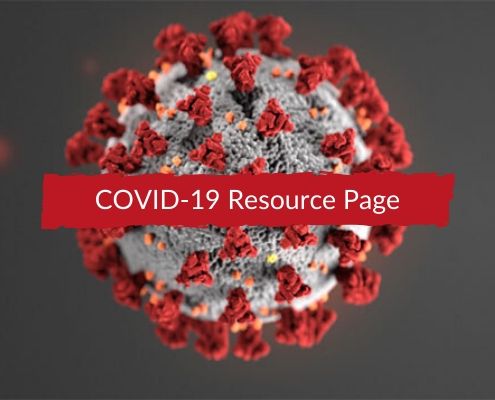Charities – Donate Wisely
Charitable organizations are vital to our economy and society. As most people have limited funds and time available to donate to charitable organizations, it is wise to make certain those resources are being given to legitimate charities that further charitable purposes. Below are tips to assist in making charitable donations, as well as information about common scams related to charities.

Message from Attorney General Slatery of Tennessee
Research the Charity
Like other segments of the economy, fraud also occurs in the charitable sector. Do your research prior to donating to a charity. Some steps you can take to obtain information about a charity and help ensure your donation is going to a legitimate organization include:
- Contact the charity and ask for detailed information such as exact name, physical address, and telephone number;
- Have the charity send you information in writing, including information about its charitable activities;
- Check the website of your Secretary of State, Attorney General, or other state office that is responsible for handling incorporation/registration of nonprofit entities if applicable;
- Use the tax exempt organization search tool at IRS.gov;
- Search charity ratings agencies such as Better Business Bureau’s (BBB) Wise Giving Alliance, Charity Navigator, Charity Watch, or GuideStar; and
- Do an internet search for other information about the charity such as complaints and compliments.
Signs of a Sham Charity
Charities are sometimes used to scam unsuspecting donors. The following are signs that may indicate that a charity is a sham or at least deserves a closer look before making a donation.
- Often, scammers use the name of a reputable charity or a name that closely resembles a reputable charity in order to confuse consumers.
- You might find that a fraudulent charity may be reluctant to answer questions about its identity, mission, costs, or how a donation will be used.
Charity Ratings
- There are a number of organizations that provide information about the trustworthiness and prior track record of charitable organizations.
- Before making a contribution, donors may want to look up an organization on Better Business Bureau’s (BBB) Wise Giving Alliance, Charity Navigator, Charity Watch, or GuideStar.
Tax Exempt vs. Tax Deductible
- “Tax exempt” and “tax deductible” do not mean the same thing
- Tax exempt means the organization doesn’t have to pay taxes.
- Tax deductible means you can deduct your contribution on your annual federal income tax return.
- The Internal Revenue Service (IRS) maintains a searchable listing of organizations that are eligible to receive tax deductible contributions.
Information from State Charities Officials
- Each state has its own requirements and regulations for charitable organizations.
- The National Association of State Charity Officials maintains a number of resources, including contact information, for each state.
Online Giving and Donor Guide
- Click here to view the Online Giving and Donor Guide.
Charities – Common Scams
Unfortunately, certain types of scams related to charities have become common. Click below to learn more about some of those common charities scams.
Crisis/Disaster Scams
- Major natural disasters or crisis situations create opportunities for scammers to prey on the generosity of people offering financial or other forms of help.
- Scam artists may call potential donors fraudulently claiming to represent a reputable organization and request money or other donations, when they are not actually affiliated with the disaster relief organization in any way.
- Sometimes after a crisis, new charities are created to provide relief. Whether an organization is new, or one that has been around for a while, always do your research before donating.
- For victims of natural disasters, the IRS also provides a toll-free disaster assistance phone number (866-562-5227) to discuss tax issues related to disasters or questions about tax relief.
Holiday/Seasonal Scams
- The holidays and “giving season” is a time when many people decide to make contributions to their charity of choice.
- Before donating to a charity, perform a simple Google search that includes the name of the charity and the words “complaint,” “scam,” or “review.” This simple search will help to avoid donating to an organization that will use your charitable gifts inappropriately.
- Social media sites like Facebook have been used in new tricks, like gift exchange scams. A participant willing to donate one gift is promised more gifts in return, however the Better Business Bureau warns that these chains are forms of a pyramid scheme and give scammers access to your home address and other personal information.
- The holidays also lead to an increase of online shipping and deliveries. Scammers may use false shipping notifications to trick shoppers expecting packages to give up their personal information when the shopper calls back to sort out the “missed” delivery.
- Scammers will also use fake deals to trick shoppers. Always check the domain name in the browser when shopping online, especially if a deal seems too good to be true.
Imposter Charities
- Imposter charities are not limited to natural disaster or crisis relief organizations.
- Often, scammers use the name of a reputable charity or a name that closely resembles a reputable charity in order to confuse consumers.
- Take caution before responding to an email or online donation request. If you wish to give to a particular charity, go straight to their website, rather than following an e-mailed link. Scammers often use names that are very close to the name of a legitimate charity to fool donors.
- An imposter charity may ask for your personal information and use that information to steal your identity or use any credit card information you provide.
- A legitimate charity will always be willing to provide you with their Employer Identification Number, an IRS assigned number that can be used to verify the charity.
Veterans and Military Scams
- An entire subset of charity fraud involves scams targeted at donors to veteran programs and assistance funds.
- Sometimes a fake organization will exploit the veterans themselves. AARP provides a useful list of fake charities that have exploited support for veterans in the past and those that may not have spent donor money appropriately.
- You can report a fraudulent veteran’s charity to the FTC and your state’s attorney general or your state’s charity regulator via NASCO, the National Association of State Charity Officials.








